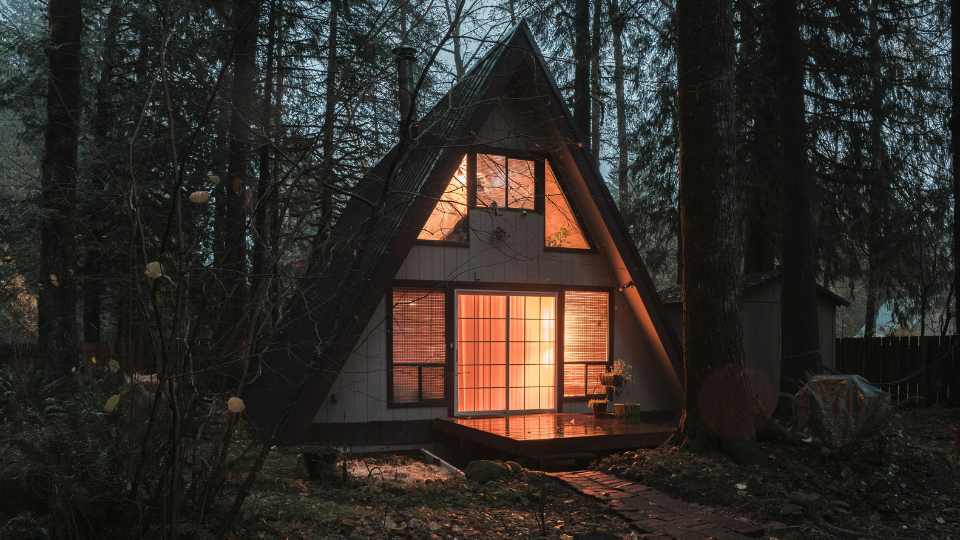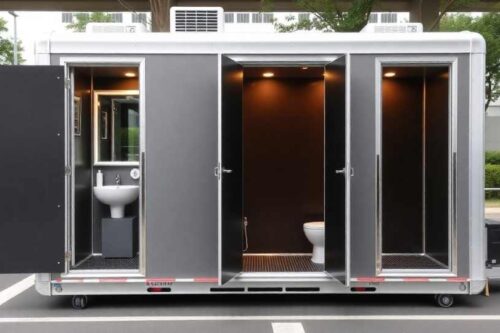Are you looking how to start a Cabin Rental Business? Then this article is for you!
Starting a cabin rental business presents an appealing opportunity, merging entrepreneurial efforts with the appreciation of nature’s beauty.
This guide outlines the essential steps involved, including conducting a comprehensive market analysis, developing a robust business plan, navigating legal requirements, and selecting an optimal location.
It also provides insights into effective marketing strategies aimed at attracting guests and offers guidance on property management to ensure maximum customer satisfaction.
Furthermore, the guide explores avenues for growth and expansion, enabling your cabin rental business to prosper in a competitive landscape.
Engage with this material to uncover the key elements of success in this rewarding industry.
Overview of the Industry
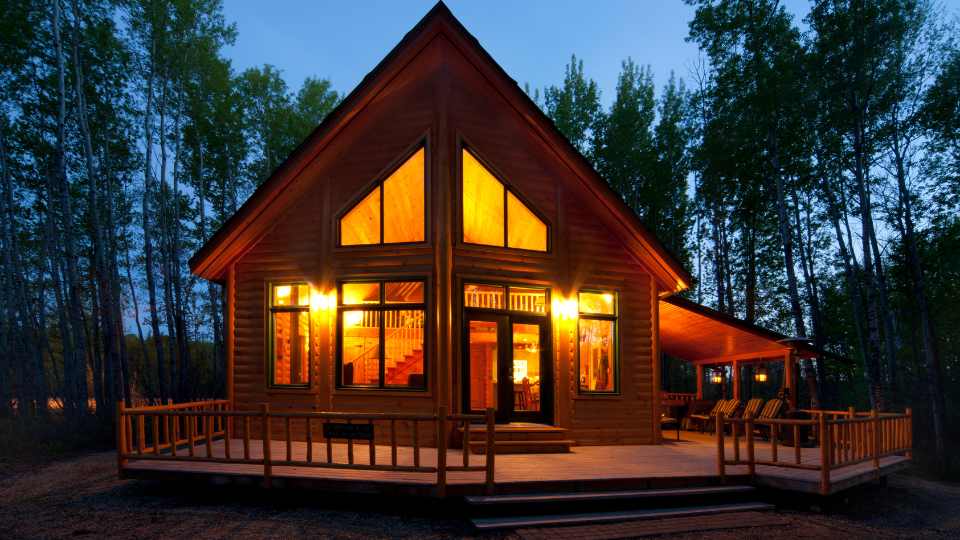
The cabin rental industry has experienced substantial growth in recent years, largely due to the increasing demand for vacation rentals in scenic locations. This trend has significantly altered the landscape of property management, with an increasing number of investors aiming to capitalize on market opportunities presented by platforms such as Airbnb and VRBO.
A comprehensive understanding of the dynamics within this industry is essential for aspiring entrepreneurs seeking to establish a business in cabin rentals. This entails conducting thorough research into investment costs, legal requirements, and optimal location selection, all while addressing the needs of a diverse target audience.
Estimated Startup Costs for a Cabin Rental Business
|
Expense Category |
Estimated Cost ($) |
|---|---|
|
Land Purchase/Lease |
$50,000 – $300,000 |
|
Cabin Construction/Renovation |
$100,000 – $250,000 |
|
Furniture and Decor |
$10,000 – $30,000 |
|
Marketing and Advertising |
$5,000 – $15,000 |
|
Legal Fees and Permits |
$2,000 – $5,000 |
|
Insurance |
$1,500 – $3,500 |
|
Utilities Setup |
$1,000 – $3,000 |
|
Miscellaneous Expenses |
$2,000 – $5,000 |
|
Total Estimated Costs |
$171,500 – $610,500 |
Research and Planning
Effective research and planning are fundamental to the success of a cabin rental business, as they aid in defining the niche and identifying the target audience. Conducting thorough market research is essential to comprehend competitive dynamics, seasonal trends, and consumer preferences.
This foundational work informs the business plan, allowing for the development of financial projections and operational strategies that align with market demand.
Market Analysis and Target Audience
Conducting a comprehensive market analysis enables cabin rental businesses to gain a deeper understanding of their target audience and to tailor their offerings accordingly, thereby ensuring a strong market fit. By identifying key customer demographics and segmenting audiences based on their preferences, businesses can effectively cater to niche markets and enhance the overall guest experience.
This strategic approach not only drives profitability but also fosters customer retention through personalized marketing initiatives.
Utilizing various methodologies such as surveys, focus groups, and online analytics can yield valuable insights into consumer behavior and emerging trends. Additionally, monitoring competitors can uncover gaps in the market that the business may capitalize on.
A thorough understanding of seasonal patterns and geographic preferences is essential for delivering specialized services, whether catering to romantic getaways, family vacations, or adventure seekers.
By emphasizing these attributes, businesses not only fulfill the unique needs of their guests but also cultivate loyalty, ensuring that each stay is memorable and distinct.
Comparison of Popular Online Booking Platforms
|
Feature |
Airbnb |
VRBO |
Booking.com |
|---|---|---|---|
|
Listing Fee |
3% |
5% |
15% |
|
Guest Review System |
Yes |
Yes |
Yes |
|
Instant Booking Option |
Yes |
Yes |
Yes |
|
Property Management Tools |
Limited |
Limited |
Advanced |
|
Target Audience |
General Travelers |
Families |
General Travelers |
Creating a Business Plan
A well-structured business plan is crucial for successfully launching a cabin rental business, as it delineates marketing strategies, operational efficiency, and financial projections. This document acts as a roadmap, guiding business decisions to ensure that investments yield satisfactory returns while addressing potential challenges in a competitive landscape.
Effective marketing strategies are essential, as they determine how to reach the target audience and convert potential clients into loyal customers. Additionally, well-crafted operational plans are vital for streamlining activities, managing resources efficiently, and enhancing the customer experience.
Financial projections offer insights into future earnings and expenses, enabling business owners to identify growth opportunities and ensure sustainable profitability. By incorporating these elements, the business plan not only supports scalability but also establishes a robust framework to adapt to market fluctuations and customer demands, ultimately contributing to long-term success.
Setting up Your Cabin Rental Business
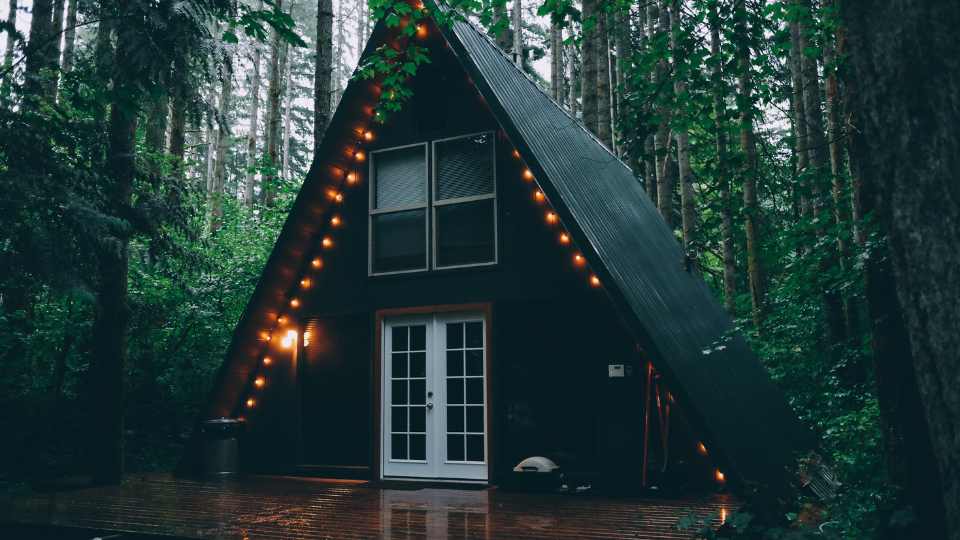
Establishing a cabin rental business requires navigating a complex landscape of legal requirements and permits, alongside making strategic decisions regarding location selection. A thorough understanding of local regulations is essential for ensuring compliance and effective property management.
This knowledge helps ensure that the cabin’s features meet market expectations and guest preferences. Factors such as zoning laws, insurance requirements, and other legal considerations are critical components in the development of a legally compliant and attractive rental property.
Legal Requirements and Permits
Navigating the legal landscape is essential for the successful operation of a cabin rental business. This process involves obtaining the necessary permits and business licenses mandated by local jurisdictions.
Adhering to zoning laws and understanding insurance requirements are critical for mitigating risks and establishing a stable operational framework.
Operators must, first and foremost, consult with local authorities to determine the specific licenses required, which may include a general business license and a transient rental license. Familiarity with zoning laws is imperative, as these regulations dictate the permissible locations for cabin rentals and assist in avoiding potential legal disputes.
Additionally, securing appropriate insurance coverage is vital, as it provides protection against liabilities that may arise from guest activities or property damage.
Consequently, a comprehensive understanding of these legal requirements not only fosters a compliant business environment but also enhances the sustainability and overall success of the rental operation.
Choosing a Location and Property
Selecting the appropriate location for a cabin rental is crucial to its overall success; it must align with market demand while enhancing the guest experience. A strategically positioned property near local attractions can significantly improve occupancy rates and attract a diverse clientele, which is essential for effective property management.
A thorough understanding of the demographics of potential guests can aid in identifying locations that may yield the best return on investment. Features such as proximity to popular activities—whether hiking trails, lakes, or cultural landmarks—are instrumental in creating a memorable experience for guests.
The chosen site should also facilitate efficient operational strategies, enabling property managers to optimize maintenance and services. A carefully selected location not only addresses immediate guest needs but also supports long-term operational success, ensuring that the rental remains competitive in an ever-evolving market landscape.
Equipment and Supplies Checklist for Cabin Rental
|
Equipment/Supply |
Estimated Cost ($) |
Quantity Needed |
|---|---|---|
|
Bedding and Linens |
$500 – $1,500 |
5 sets |
|
Kitchen Appliances |
$2,000 – $5,000 |
1 set |
|
Outdoor Furniture |
$1,000 – $3,000 |
1 set |
|
Cleaning Supplies |
$300 – $800 |
Bulk |
|
Maintenance Tools |
$200 – $500 |
Basic Set |
Marketing and Promoting Your Business

An effective marketing strategy is crucial for promoting a cabin rental business and attracting potential guests. The utilization of various marketing channels, including social media marketing, targeted advertising, and SEO-optimized online listings, can significantly enhance visibility in a competitive market.
Additionally, crafting compelling content to showcase the property can further increase guest engagement and booking rates.
Marketing Budget Allocation
|
Marketing Channel |
Percentage of Budget (%) |
Estimated Cost ($) |
|---|---|---|
|
Social Media Advertising |
30% |
$1,500 – $4,500 |
|
SEO and Online Listings |
25% |
$1,250 – $3,750 |
|
Local Partnerships |
20% |
$1,000 – $3,000 |
|
Print Advertising |
15% |
$750 – $2,250 |
|
Events and Promotions |
10% |
$500 – $1,500 |
Effective Advertising Strategies
Establishing effective advertising strategies is essential for developing a cabin rental brand and attracting the target audience. By leveraging competitive pricing, emotional branding, and outreach efforts, operators can create a compelling value proposition that resonates with potential guests and ultimately drives bookings.
Implementing a diverse array of advertising tactics, including social media campaigns and search engine optimization, significantly enhances visibility in a competitive market. Storytelling plays a crucial role in building emotional connections with prospective customers, enabling them to envision their ideal getaway.
This approach, combined with competitively priced packages, positions cabin rentals as an appealing choice.
Effectively communicating unique features, such as proximity to natural attractions or exclusive amenities, can be the determining factor in attracting attention and securing reservations.
Utilizing Online Platforms
Leveraging online platforms such as Airbnb and VRBO for a cabin rental business can significantly enhance visibility and booking potential. By optimizing online listings and ensuring efficient payment processing, business owners can attract a broader audience and streamline operations, thereby fostering customer satisfaction and improving the overall guest experience.
These platforms provide a user-friendly interface for potential guests and facilitate effective communication between owners and renters. By utilizing features such as automated messaging and review systems, hosts can promptly address inquiries, build trust, and enhance the overall booking experience.
The integration of online travel agencies simplifies payment processing, allowing guests to securely book their stays with ease. This efficiency not only boosts convenience but also encourages repeat customers, ultimately resulting in increased revenue and a solid reputation within the competitive cabin rental market.
Pricing Strategy for Cabin Rentals
|
Season |
Nightly Rate ($) |
Weekend Rate ($) |
Weekly Rate ($) |
|---|---|---|---|
|
Off-Peak |
$120 |
$150 |
$800 |
|
Mid-Peak |
$180 |
$220 |
$1,200 |
|
Peak |
$250 |
$300 |
$1,700 |
Managing Your Cabin Rental Business
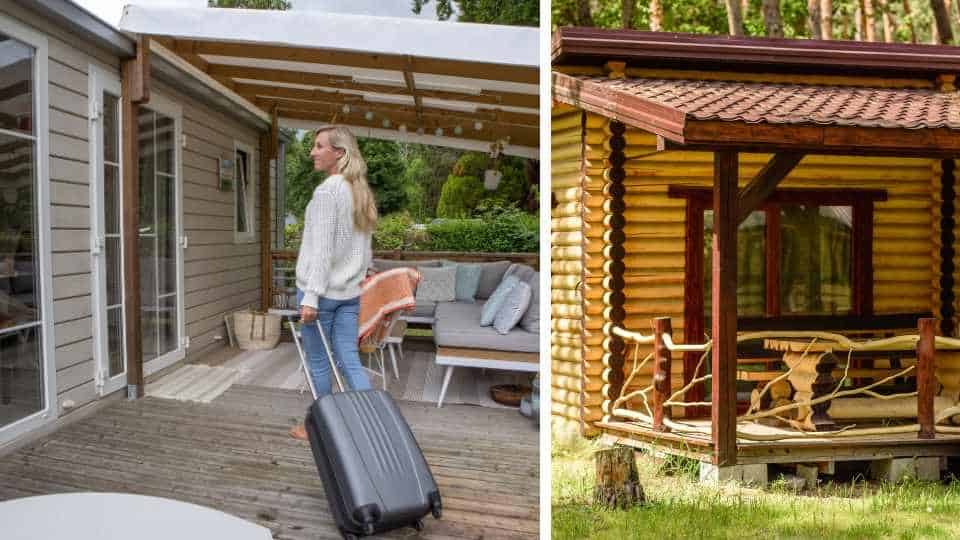
Effectively managing a cabin rental business necessitates a comprehensive approach that includes property management, customer service, and efficient systems for bookings and maintenance.
The implementation of a robust booking system, alongside dependable cleaning services, significantly enhances the guest experience, thereby promoting repeat visits and fostering positive reviews.
Establishing Policies and Procedures
Establishing clear policies and procedures is essential for maintaining operational efficiency and ensuring a high standard of customer service in a cabin rental business. These guidelines facilitate effective communication with guests and play a crucial role in addressing customer feedback, ultimately leading to enhanced guest experiences.
When these protocols are well-defined, they streamline daily operations and give the power to staff to respond promptly and confidently to guest inquiries and concerns. This responsiveness cultivates a positive environment, thereby enhancing the overall guest experience.
Clarity in policies ensures consistent service delivery, which can significantly impact customer loyalty and satisfaction.
By regularly reviewing and adapting these procedures based on valuable feedback, the business can maintain its reputation and remain competitive in the market, creating lasting impressions that encourage repeat visits.
Maintaining the Property and Customer Satisfaction
Regular property maintenance is essential for ensuring customer satisfaction and providing an enjoyable guest experience in cabin rentals. Collaborating with reliable cleaning services and establishing maintenance contracts can significantly mitigate issues that may detract from the overall experience while enhancing operational efficiency.
Consistent upkeep not only prevents minor inconveniences from escalating into major problems but also demonstrates a commitment to quality, which is highly valued by guests. A well-maintained property reflects attention to detail, further enriching the guest experience.
By implementing comprehensive cleaning schedules and preventive maintenance checklists, cabin owners can cultivate a seamless environment that encourages positive reviews and repeat bookings. This proactive approach fosters trust with visitors, making them feel more comfortable and satisfied throughout their stay.
Expanding and Growing Your Business
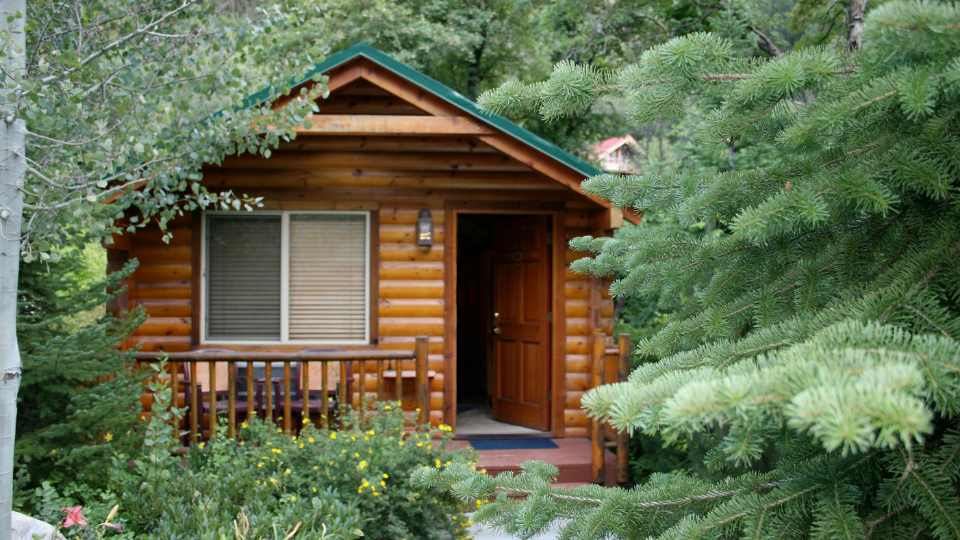
Expanding a cabin rental business presents substantial opportunities for growth and enhanced profitability through the addition of more properties to the portfolio.
A comprehensive understanding of market demand, along with a focus on fostering customer loyalty and encouraging repeat business, will be essential components for successfully scaling operations and achieving long-term success.
Adding Additional Properties
Expanding a cabin rental business necessitates careful consideration of investment costs and property valuations to ensure effective scalability. Conducting comprehensive market research is essential to identify lucrative opportunities that align with the existing portfolio and target audience.
This process begins with an assessment of current real estate market trends to identify areas with high rental demand and favorable investment conditions. Evaluating potential properties requires a thorough understanding of their location and amenities, alongside meticulous calculations of renovation expenses and ongoing maintenance costs.
Additionally, it is critical to analyze competitor offerings to assess pricing strategies and occupancy rates, which will further inform the valuation of new acquisitions. By focusing on these key elements, one can strategically expand the business, ensuring profitability and sustained growth within the competitive cabin rental landscape.
Building Customer Loyalty and Repeat Business
Building customer loyalty and encouraging repeat business are essential for the long-term success of a cabin rental enterprise. By prioritizing the guest experience, delivering exceptional customer service, and actively seeking referrals through community involvement, one can cultivate a loyal customer base that returns year after year.
Creating memorable experiences extends beyond merely providing accommodations; it necessitates a thorough understanding of guests’ needs and exceeding their expectations at every opportunity. Personalized touches, such as handwritten welcome notes or tailored recommendations for local activities, can significantly enhance the guest experience.
Engaging with the community not only fosters collaboration with local businesses but also establishes a network that can improve customer retention. Additionally, leveraging social media and encouraging guests to share their experiences can drive referrals, further solidifying these vital relationships and fostering an environment where customers feel valued and connected.
Read Also: How to Start a Business in Upscale Portable Bathrooms
Read Also: How Much Does it Cost to Start a Septic Business
Read Also: How to Start a Bounce House Business
Read Also: How to Start a Bamboo Clothing Business
Frequently Asked Questions
What are the first steps to starting a cabin rental business?
The first step is to research the local laws and regulations for operating a rental business. Next, choose a specific location and determine the type of cabin rental business you want to run.
How do I find the right cabin to rent out?
Start by determining the location and target audience for your rental business. Then, look for cabins that meet your criteria through online listings, real estate agents, or contacting local cabin owners directly.
What are some important factors to consider when pricing my cabin rental?
Consider the location, amenities, and size of your cabin when determining the rental price. Research the prices of similar cabins in the area and set competitive rates to attract potential guests.
Do I need to have insurance for my cabin rental business?
Yes, it is highly recommended to have insurance for your cabin rental business. This will protect you in case of any damages or accidents that may occur on your property.
How can I effectively market my cabin rental business?
Utilize online platforms such as social media, vacation rental websites, and your own website to showcase your cabin and attract potential guests. Networking with local businesses and offering special deals can also help to promote your business.
What are some ways to ensure a smooth check-in and check-out process for guests?
Provide clear instructions for check-in and check-out procedures, such as key pick-up and drop-off. Have a designated contact person for guests to reach in case of any issues or questions. Also, ensure that the cabin is clean and well-stocked for each guest’s arrival.


